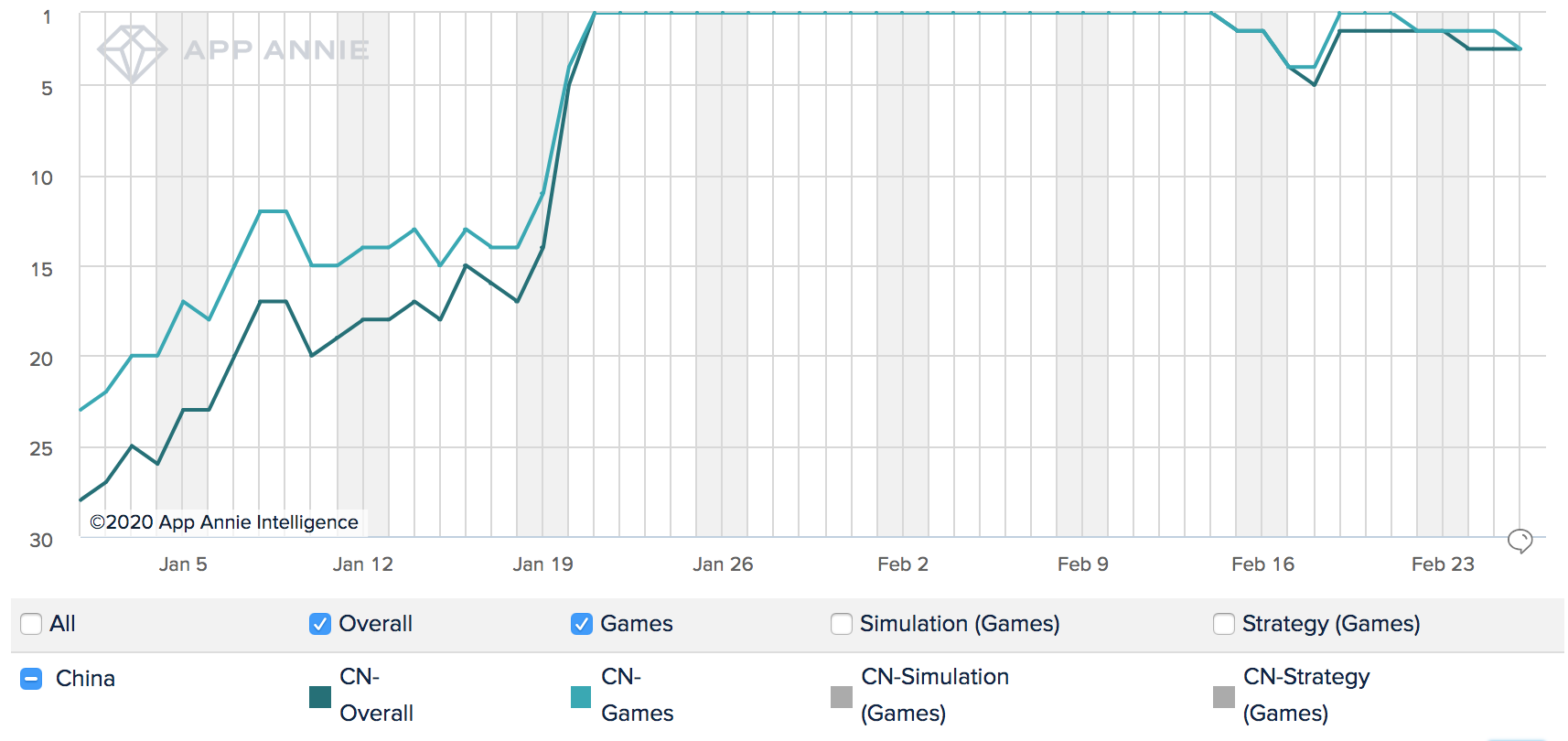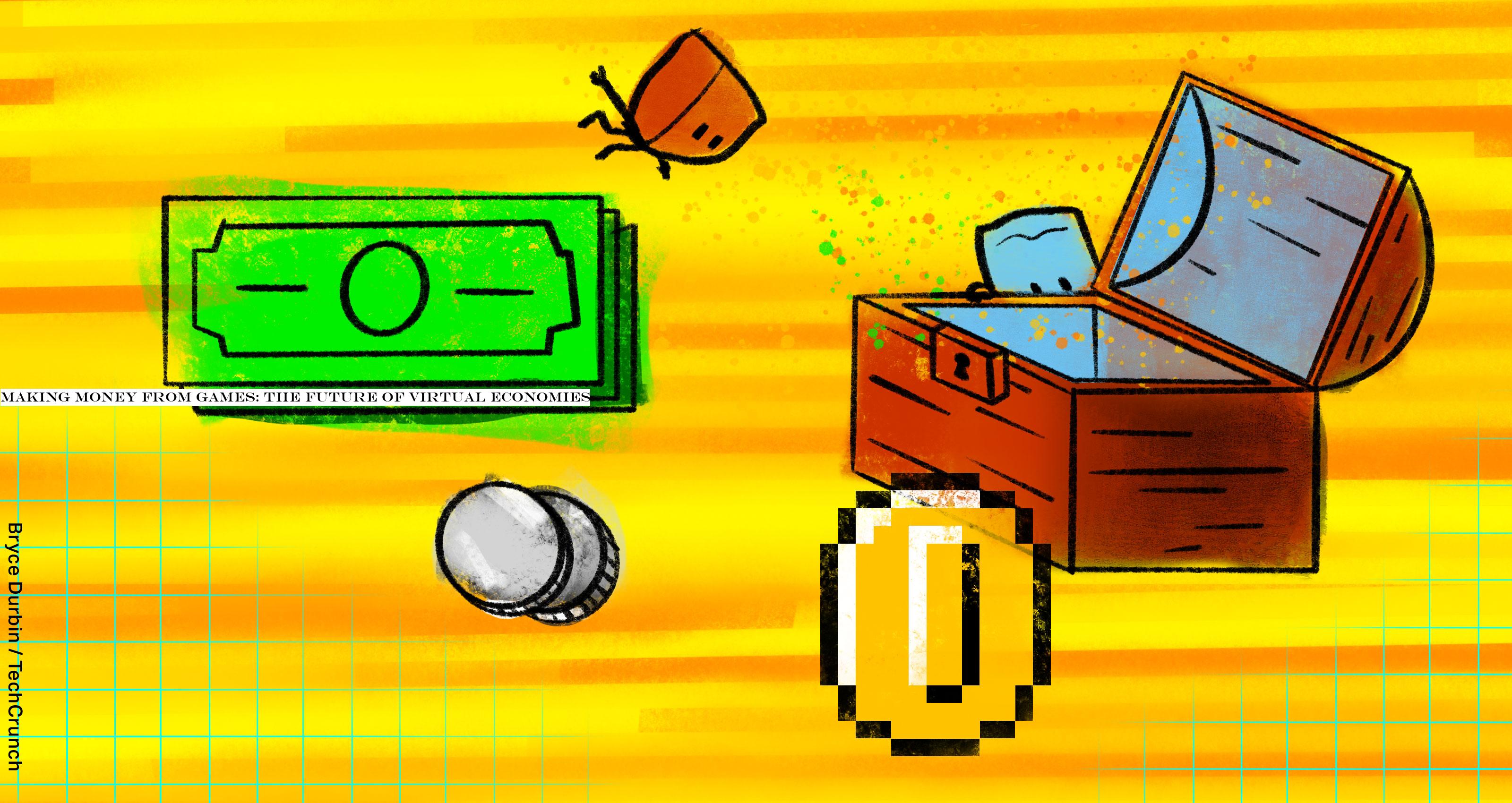Music
Trailers
DailyVideos
India
Pakistan
Afghanistan
Bangladesh
Srilanka
Nepal
Thailand
Iraq
Iran
Russia
Brazil
StockMarket
Business
CryptoCurrency
Technology
Startup
Trending Videos
Coupons
Football
Search
Download App in Playstore
Download App
Best Collections
Technology
The world is bracing for the seemingly inevitable proliferation of SARS-COV-12, also known as COVID-19 and coronavirus, which has already paralyzed cities and isolated millions. In the U.S., especially the nonstop work culture in startups, we tend to think we&re immune to such things and carry on business as usual. We are not only deluding ourselves but putting others in danger — so here are a few ground rules to make sure you don&t make this difficult period any harder for yourself or the people you work with.
We decided to publish something on this because we saw a lot of people unsure about what is appropriate to do and not do, as a CEO, an aspiring founder, or an employee in the tech world. If you are looking for the latest news on the health crisis or want to learn more about the virus, visit the Centers for Disease Control and Preventionor the World Health Organization‘s dedicated sites.
1. Take reasonable precautions and be transparent
The CDC says that good self hygiene and frequent hand-washing are the best ways to prevent the spread of the virus. Masks are actually not recommended, but won&t make anything worse — they&re more for someone infected than someone healthy.
You&re also only at risk of being affected by people you come into contact with — this isn&t a nerve agent thatgoing to creep in through the cracks of your windows. To minimize risk, stay home if you can. This may mean canceling meetings, working remotely, or skipping a conference (if it hasn&t been canceled already).
Work through your ramen supplies, rice, and frozen leftovers, and if you do decide to go out, wash your hands frequently or carry hand sanitizer. If you order in and would rather have the driver drop something off than hand it to you, thatfine too.
When you do something that could affect others, it might be good to explain that you&re doing it because the threat of infection. Choose your words carefully, but be clear about it: &Can we do a video call instead? I&m trying to minimize my exposure right now& is fine. If people think you&re doing this because you think they&re infected or dirty, thata problem on their side, and they probably haven&t read this list.
To be clear, the world isn&t a death trap right now. But because the virus can be asymptomatic and still spread, itnot obvious where it is and isn&t dangerous to be. So you should do what makes you feel comfortable and minimizes the risk of exposure in general.
2. Don&t question precautions taken by others
A lot of things are going to go wrong over the next few weeks. Major events have already been canceled and no doubt many face-to-face meetings are being skipped out on. That sucks — but limit your judgment of the people making those decisions.
If someone doesn&t want to shake hands or fist bump, thatOK. If someone wants to meet by video instead of the coffee shop, thatOK. If someone leaves work early because they get freaked out, thatOK.
Even in ordinary circumstances we never really know what other peoplemotivations and limitations are, and in this situation we know even less than usual. Individuals or companies may be under pressures you&re not aware of — family, financial, religious, personal — and their decisions, even if they cause serious inconvenience to you, have to be accepted without question right now.
That goes for employers, too: If someone wants extra sick time right now, let them have it. If they want to remote in to a crucial meeting, that should be fine. If later, as their employer, you feel they may have taken advantage of the situation to slack off or take a little extra paid leave, thatsomething to talk about later. Not during a global health crisis.
Now, you&re likely to see a lot of absurd and racist precautions like not eating at Chinese restaurants or popping bubble wrap because itsupposedly Chinese air. Rather than take individuals to task for their mistaken or bigoted views, though, try to reinforce the truth by sharing reliable information from sources like the CDC and WHO. No one takes a tweet from you seriously, but people may trust an international consortium of medical and epidemiology professionals. At least thatthe hope.
3. Take the loss
This is going to cost you money, time, and opportunity. Meetings will be delayed, which will eat up overhead. Promised dates for products and services will come and go and your company will not meet them. Information you need won&t be available until ittoo late. Itgoing to hurt!
Just remember: You&re not the only person or company ithappening to. Everyone is taking a hit on this one.
Have you seen the stock market? People are getting rinsed at historic levels.
Know anyone in South Korea or coastal China? Think about what they&re dealing with.
Mobile World Congress is canceled — ithuge! What are the organizers going to do? No idea. What about Facebook? Will they have a small, weird F8 later or what? GDC will be a ghost town if it happens at all.
This changed from a &how do I avoid issues& to pure damage control for pretty much everyone sometime over the last week. So instead of thinking about how you&re being put out, start thinking about what happens afterwards. Pack your schedule with follow-up reminders, tell your crew to track changes to timelines, inform and apologize to clients. If they&re following rule number 2, they&ll understand.
4. Evolve and interrogate your process
If these events, or others like them, are seriously affecting your productivity or the ability of your company to function, maybe you should think about that a bit. What are you unable to do — specifically? Whatstopping you — specifically?
Do you rely too much on face-to-face communications and find yourself unable to explain concepts in writing? Has your team abandoned Slack for anything productive? Are your press releases and email pitches limp? When you&re forced to fall back from your strengths, you necessarily encounter your own weaknesses.
This is an opportunity to take a good look at what you and your company are and aren&t good at when it comes to communication and productivity. In fact, itmore than an opportunity — you&re going to be slapped in the face with these shortcomings whether you like it or not. Whether you make something out of it or not is up to you.
And think of this time as an opportunity to simply catch up. What tasks have you been putting off that you can finally take the time to do? You could work on getting to inbox zero, read the documents you promised you would weeks ago, or practice your pitch.
So much of what the tech and tech-enabled industries (which is pretty much everything now) do, we can do with limited access to one another, or even limited connectivity. And even if you can&t do your job, you can always get better at it.
5. Remember that itnot just you
Whathappening right now is a global issue of great complexity and with far-reaching effects. The things happening to you and your company are a very small part of it.
Don&t take this personally. COVID-19 didn&t emerge from naturepetri dish to smite your B2B payments play. Like a tropical storm or political scandal, this is something that comes out of nowhere and causes indiscriminate damage. You&re not the only one being affected, and chances are if you&re reading this that you&ve got it better than most.
At the same time, if you&re feeling frustrated or scared or pent in, knowing that itnot just you can be helpful — others are dealing with this too and will understand.
- Details
- Category: Technology Today
Read more: How to work during a pandemic
Write comment (96 Comments)Itnever a good sign when, in order to discuss the near future of technology, you first have to talk about epidemiology&but I&m afraid thatwhere we&re at. A week ago I wrote &A pandemic is coming.& I am sorry to report, in case you hadn&t heard, events since have not exactly proved me wrong.
The best current estimates are that, absent draconian measures like China&s, the virus will infect 40-70% of the worldadults over the next year or so. (To be extra clear, though, a very sizable majority of cases will be mild or asymptomatic.)
This obviously leads to many questions. The most important is not &can we stop it from spreading?& The answer to that is already, clearly, no. The most important is &will its spread be fast or slow?& The difference is hugely important. To re-up this tweet/graph from last week:
A curve which looks like a dramatic spike risks overloading health care systems, and making everything much worse, even though only a small percentage of the infected will need medical care. Fortunately, it seems likely (to me, at least) that nations with good health systems, strong social cohesion, and competent leadership will be able to push the curve down into a manageable &hill& distribution instead.
Unfortunately, if (like me) you happen to live in the richest country in the world, none of those three conditions apply. But letoptimistically assume Americasheer wealth helps it dodge the bad-case scenarios. What then?
Then we&re looking at a period measured in months during which the global supply chain is sputtering, and a significant fraction of the population is self-isolating. The former is already happening:
Ithard to imagine us avoiding a recession in the face of simultaneous supply and demand shocks. (Furthermore, if the stock markets keep dropping a couple percent every time thereanother report of spreading Covid-19, we&ll be at Dow 300 and FTSE 75 in a month or two&I expect a steady, daily drip-feed of such news for some time. Presumably traders will eventually figure that out.) So what happens to technology, and the tech industry, then?
Some obvious conclusions: technology which aids and enables remote work / collaboration will see growth. Biotech and health tech will receive new attention. More generally, though, might this accelerate the pace of technological change around the world?
A little over a year ago I wrote a piece entitled &Here comes the downturn& (predicting &Late 2019 or early 2020, says the smart money.&) To quote, er, myself:
The theory goes: every industry is becoming a technology industry, and downturns only accelerate the process. Itplausible. Ituncomfortable, given how much real human suffering and dismay is implicit in the economic disruption from which we often benefit. And on the macro scale, in the long run, iteven probably true. Every downturn is a meteor that hits the dinosaurs hardest, while we software-powered mammals escape the brunt.
Even if so, though, whatgood for the industry as a whole is going to be bad for a whole lot of individual companies. Enterprises will tighten their belts, and experimental initiatives with potential long-term value but no immediate bottom-line benefit will be among the first on the chopping block. Consumers will guard their wallets more carefully, and will be ever less likely to pay for your app and/or click on your ad. And everyone will deleverage and/or hoard their cash reserves like dragons, just in case.
None of that seems significantly less true of a recession caused by a physical shock rather than a mere economic one. My guess is it will be relatively short and sharp, and this time next year both pandemic and recession will essentially be behind us. In the interim, though, it seems very much as if we&re looking at one of the most disconcertingly interesting years in a very long time. Lethope it doesn&t get too much moreso.
- Details
- Category: Technology Today
Read more: May we live in interesting times
Write comment (95 Comments)Hello and welcome back to TechCrunchChina Roundup, a digest of recent events shaping the Chinese tech landscape and what they mean to people in the rest of the world. This week, Apple made some major moves that are telling of its increasingly compliant behavior in China where it has seen escalating competition, but investors are showing dissatisfaction with how it is approaching hot-button issues in the country.
Virus game gone
Plague Inc., a simulation game where a playergoal is to infect the entire world with a deadly virus, was removed from the China iOS App Store this week. Since the outbreak of the COVID-19 coronavirus in late January, Chinese users had flocked to download the eight-year-old game, potentially seeking an alternative way to understand the epidemic.
Data from market research firm App Annie shows that the title remained the most downloaded app in China from late January through most of February, up from No. 28 at the beginning of the year.

Ndemic Creations, the U.K. studio behind the game, said in a statement that the &situation& — the removal of Plague Inc. from the Apple App Store — &is completely out of our control.& The Chinese government provided an opaque reason for the takedown, saying the game &includes content that is illegal in China as determined by the Cyberspace Administration of China,& which is the countryinternet watchdog.
The incident has gotten plenty of attention in and outside of China. Some speculate that Apple has caved to pressure from Beijing, which could find Plague Inc.gameplay troubling. One sticking point is that its tutorial by default picks China as the starting country, although in the main game a user can begin anywhere in the world. The Information reported in 2018 that Plague Inc. actually applied for official permission to distribute in China but was turned down on account of its &socially inappropriate& content.
Others including Niko Partners games analyst Daniel Ahmad suggested that the Chinese authority might have taken issue with a December version update that allowed players to create &fake news,& which could mislead them in seeking advice in the midst of the health crisis.
Ahmad also suggested that the ban might have been linked to the ongoing crackdown of unlicensed mobile games in China. Notably, the Plague Inc. ban coincided with Appleannouncement this week that would require all games in its Chinese app store to obtain government approval in the form of an ISBN number beginning in July. Few details have come to light about what this new regulatory process entails. Nor do developers know whether currently published games without official approval will be removed.
Apple investors are not sitting well with the firmapp takedowns in China. 40% of its shareholders cast support for a proposal that would force Apple to uphold human rights commitment and be more transparent on how it responds to Beijingrequests to censor apps.
AppleDelay
The gaming permit requirement is not new, though. In fact, Apple is just closing a regulatory loophole that had existed for years. Back in 2016, the Chinese government stipulated that video games — both PC and mobile — must apply for an ISBN number before entering circulation China. Within months, alternative Android stores operated by domestic tech giants swiftly moved to weed out illegal games. The official Google Play store is unavailable in China.
But Apple has managed to keep unlicensed titles in stock in the worldlargest gaming market, where content is strictly monitored. The American behemoth has many incentives to do so. Despite iPhoneeroding share in China (to be fair, all Chinese phone makers but Huawei have recently suffered declining market share), iOS apps in China, especially games, remain an important revenue source for Apple.
So itin Applebest interest to clear hurdles for apps publishing in the country. Where there is a will, there is a way. Prior to 2016, publishing a game in China was relatively hassle-free. Following the regulatory change that year, Apple began asking games for proof of government license — but it didn&t go all out to enforce the policy. Local media reported that developers could get by with fabricated ISBN numbers or circumvent the rule by publishing in an overseas iOS App Store first and switching to China later.
This questionable practice did not go unnoticed. In August 2018, a Chinese state media lambasted Apple for its lousy oversight over App Store approvals.
Stepping up inspection on games will likely have little impact on Chinagaming titans who enjoy the financial and operational resources to secure the much-needed permit. Rather, their challenge is devising content that aligns with Beijingideological guidelines, exemplified by Tencentpatriotic makeover of PUBG.
Those that will be worst hit will most likely be small-time, independent studios, as well as firms that create &sockpuppet games& (马甲包), a practice whereby a developer exploits app stores& loopholes to publish a troop of clones with similar gameplay and mask their appearance with altered names, logos and characters. Doing so can often help the publisher gain more traffic and revenue, but these sockpuppets will have a low chance of passing the authoritystrict scrutiny, which, as a Chinese gaming blog speculates, will potentially put an end to the surreptitious practice.
- Details
- Category: Technology Today
Read more: China Roundup: Apple closes a 4-year-old App Store loophole
Write comment (98 Comments)

In an effort to show the world just how impressive the camera is on its iPhone 11 Pro, Apple has revealed that the music video for Lady Gaga's latest single, Stupid Love, was shot entirely on the flagship handset.
The video for Stupid Love is directed by Aussie filmmaker Daniel Askill, with cinematography by Sebastian Wintero and editing by Lorin
- Details
- Category: Technology Today
Read more: Lady Gaga's vibrant new music video shot exclusively using Apple's iPhone 11 Pro
Write comment (95 Comments)
Fictional portrayals of virtual worlds such as &Ready Player One& and &The Matrix& typically portray the physical and virtual worlds as distinct realms siloed from each other. Characters escape a dystopian, impoverished physical realm and enter a separate, utopian virtual realm in which they are wealthy and important.
Our non-fictional future won&t have that dichotomy. One main reason is money. Any virtual world has a virtual economy, and when that virtual economy gets really big, it integrates with our real-world economy. That is in equal parts due to market forces and government intervention.
This is part six of a seven-part series about &multiverse& virtual worlds. We will explore the dynamics of games& virtual economies, the exchange of virtual assets for real money, challenges with money laundering and underage gambling, the compliance infrastructure needed for virtual economies, and the challenges in balancing a virtual economymonetary supply.
What separates virtual from &real& is the ability to make money
To many people, the idea of spending time in virtual worlds amassing in-game currency and trading goods still sounds like the geeky science fiction hobby of someone who needs to &get a real job.&
Our society gauges the worthiness of pursuits based on their social and economic productivity, and most people don&t view virtual worlds as productive places. As more people find enjoyment in virtual worlds and respect people with accomplishments in them, however, vying for accomplishment with those worlds will increasingly be viewed as socially productive. As more people start earning an income through work in virtual worlds, perception of economic productivity will quickly change, too.
Virtual worlds will be viewed as digital extensions of &the real world& and working a full-time job in a multiverse virtual world will become as normal as someone working in a social media marketing role today.
- Details
- Category: Technology Today
Read more: Making money from games: the future of virtual economies
Write comment (99 Comments)

During the month of March, Telstra is offering a AU$120 discount on select BYO phone plans when new customers switch to a month-to-month mobile deal.
If you bring your own smartphone over to the Telstra network and sign up for a SIM-only plan of AU$60 or above before March 30, you’ll get AU$10 off for your first 12 months – saving you AU$120 over th
- Details
- Category: Technology Today
Read more: Telstra's knocking AU$120 off some of its SIM plans
Write comment (91 Comments)Page 1351 of 1441

 20
20





